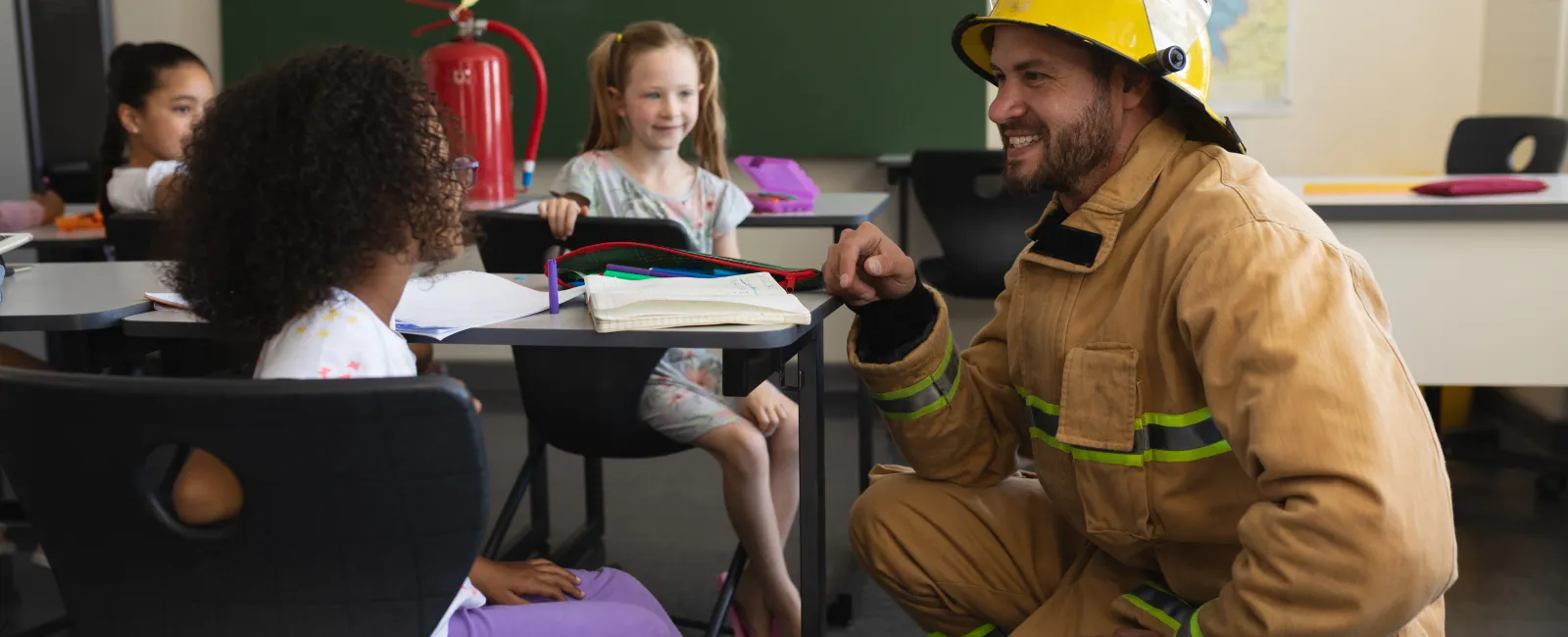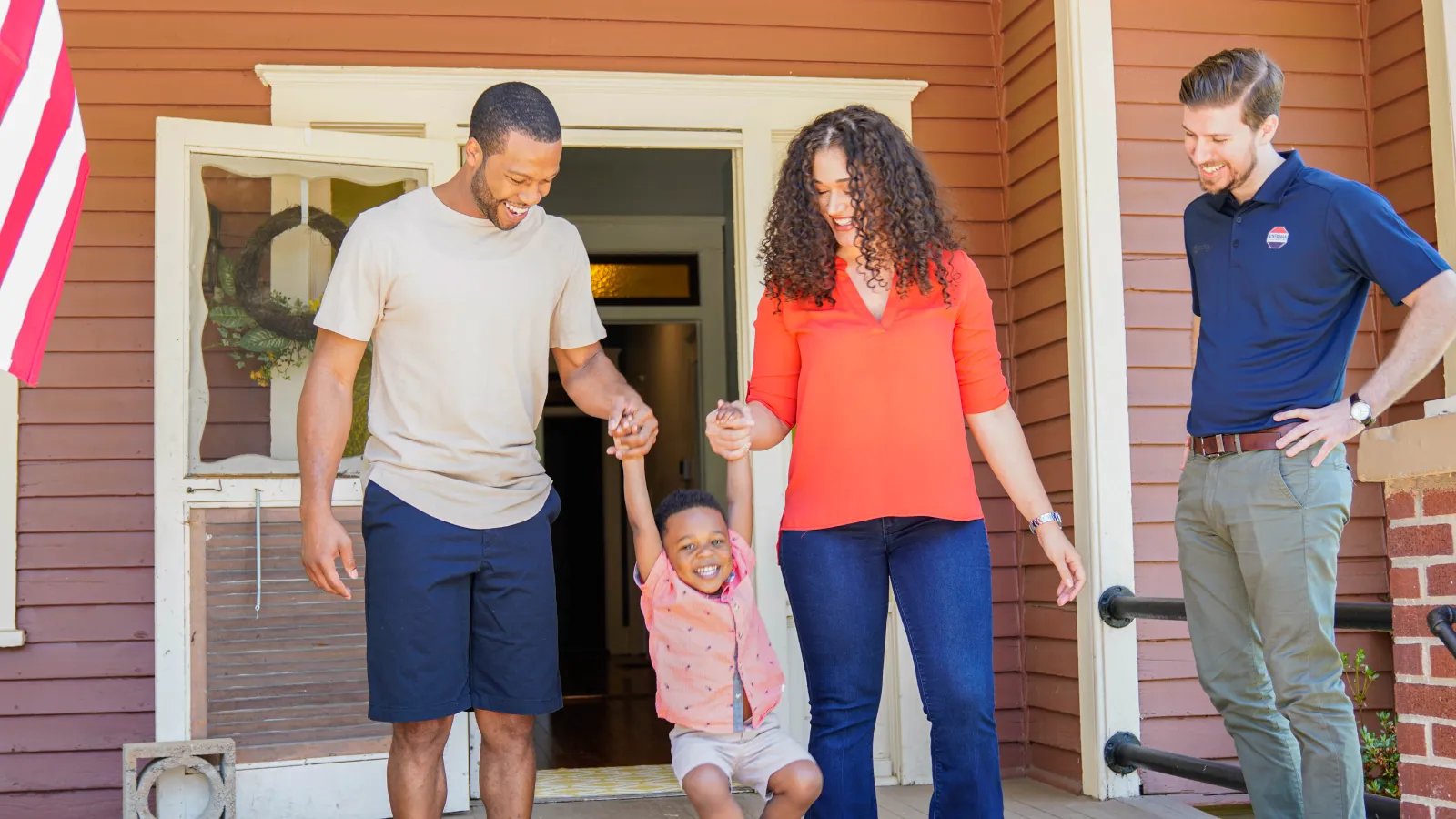In the United States, a home catches fire every 88 seconds. Even more alarming, 3 of every 5 home fire deaths resulted from fires in houses with no working smoke alarms.
While these are pretty alarming statistics, the majority of house fires can be prevented. There are several actions you can take to protect your property and loved ones from fire.
As homeowners, it's essential to take a comprehensive approach to fire safety. Not only should you evaluate any fire hazards in and around your home, but also educate yourself and your family on how to prevent and prepare for fire should one occur.
In this blog, we'll walk you through our fire safety checklist, which includes:
- Identifying danger zones in your house
- Educating children about fire safety
- Creating a family escape plan
First, though, let's take a quick look at the fire safety devices you should have in your home and the benefits of each.
Ackerman Security is protecting what matters most. Our professional fire monitoring services are saving lives and preventing home damage across the Atlanta area. You can reach out to us directly at 800.552.1111 or schedule an instant quote online.
Ensure your fire safety devices are in working order
When it comes to a house fire, every second counts. That's why it's essential to not only have the proper fire safety equipment installed, but to ensure each device is working correctly. The right safety devices can alert you immediately if you and your family are in danger, saving you precious time and allowing you to reach safety before disaster strikes.
Smoke detectors
Smoke detectors are one of the most important tools you can use to keep your family and home safe from fire. Smoke detectors should be installed on every level of your home, inside your bedrooms, and outside of all sleeping areas.
Our tips:
- Replace any smoke detector that's 10 years old or older.
- Make sure your family knows what your smoke alarm sounds like and what to do when they hear the alarm ringing.
- Replace your smoke detector's batteries once a year.
- Test your smoke detectors monthly by pressing the "test" button.
- Never disable your smoke detector.
Want even more protection from house fires? You can sign up for 24/7 professional fire monitoring through Ackerman Security for fire, water damage, and medical emergencies. With fire monitoring services, your fire alarm will launch a full-scale response from our local monitoring station, alerting emergency services within seconds of the alarm being triggered.
Carbon monoxide detectors
Because it is an odorless gas, carbon monoxide poisoning victims frequently can't tell when there's a leak— until it's too late. So, if your home has gas-powered appliances, an attached garage, or a fireplace- a carbon monoxide detector or alarm can be life-saving.
Our tips:
- Install one on every level of your home.
- For increased safety, install one outside of every sleeping area.
- They should never be installed within 5-10 feet of gas-powered appliances or near windows or doors.
- Ensure your detectors are replaced every 7 years.
If you want to learn more about preventing carbon monoxide leaks, check out this article.
Gas leak detectors
While you've likely heard of smoke alarms and carbon monoxide detectors, gas leak detectors may be a new term for you. Gas leaks pose both a personal health threat and a fire safety threat. Natural gas leaks also are typically not detected by a carbon monoxide detector.
A natural gas leak happens when a gas line or gas appliance springs a leak. The natural gas in the pipeline can seep out and leak into open areas, resulting in:
- Dizziness or asphyxiation
- Flammable mixtures that can explode when exposed to open air
- Higher gas bills
- Damage to property
- and more
If you're concerned about natural gas exposure or interested in learning how to detect a gas leak in your home, give us a call at 800.552.1111.
Identify danger zones in your house
The most effective way to protect yourself and your home from fire is to identify and remove fire hazards. Let's begin by reviewing this checklist of common danger zones in your home to ensure that you're intentionally safe in every area of your home.
Kitchen safety
- Stay in the kitchen when you're actively heating up food.
- Turn pot handles towards the stove's back.
- Don't store flammable items near food heating areas.
Appliance/electrical safety
- Inspect electrical cords to ensure they're in good condition with no exposed wires.
- Seek professional help if any plug outlets are warm to the touch.
- Plug appliances directly into wall outlets.
- Always clean your dryer's lint trap after each use.
Candle safety
- Ensure that candles are in fire-proof containers that won't easily tip over.
- Blow out candles when you're not in the room with them.
- Keep candles out of reach from kids or pets.
Highly flammable products safety
- Store paint in tightly closed metal containers.
- Don't store flammable liquids near heat sources.
- Store oily rags in properly sealed containers.
Home heating safety
- Inspect what you've placed near fireplaces, furnaces, baseboards, and other heat generators.
- Establish a "3-feet rule" keeping flammable items 3-feet away from heat sources.
Fire extinguisher safety
- Ensure your home has a UL or FM-approved fire extinguisher.
- Shake your extinguisher two times a year to prevent the powder from packing.
- Check its manufacturing date and replace your extinguisher if it's 10+ years old.
Smoking safety (if applicable)
- Never smoke in bed.
- Don't empty ashtrays into trash cans.
- Fill your home with many safe ashtrays spread throughout.
- Be diligent never to let smoldering butts fall onto furniture.
Educate children about fire safety
Children are naturally curious about fire and can find themselves in a dangerous situation if they aren't educated about fire safety.
Teach your kids these lessons:
- Don't treat matches, lighters, or candles as toys.
- Keep a safe distance from fireplaces, open flames, and stoves.
- Don't put flammable items like clothes near heat sources.
- Recognize if your smoke alarm or carbon monoxide detector is going off. Exit the building quickly, ask an appropriate adult for help, and/or call 911.
Create a family escape plan
If your home catches on fire, everyone living in the home must know how to escape quickly and safely. A fire escape safety plan can be powerful to create to protect your family.
- Ensure every room has at least two exit options.
- Designate a safe meeting place to gather outside of the home.
- Ensure everyone knows how to respond to smoke detectors and how to use a fire extinguisher (if they're old enough).
- Revisit your family escape plan two times a year to reinforce it.
Are you seeking fire monitoring services for your home?
Our clients often find incredible peace of mind after investing in Ackerman Security's 24/7 fire monitoring services. We are here to help make your home as safe as it can be.
Not a current customer? We'll work with you to design a security system that will give you true peace of mind. From our no-theft written guarantees to our 200% Money Back guarantee, see why more families in the Atlanta area trust Ackerman with their home security.
Call us at 800.552.1111 or schedule an instant security quote online.






